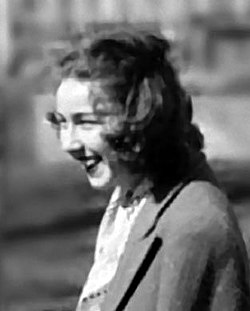Flannery O'Connor Quote
He felt his hunger no longer as a pain but as a tide. He felt it rising in himself through time and darkness, rising through the centuries, and he knew that it rose in a line of men whose lives were chosen to sustain it, who would wander in the world, strangers from that violent country where the silence is never broken except to shout the truth. He felt it building from the blood of Abel to his own, rising and spreading in the night, a red-gold tree of fire ascended as if it would consume the darkness in one tremendous burst of flame. The boy’s breath went out to meet it. He knew that this was the fire that had encircled Daniel, that had raised Elijah from the earth, that had spoken to Moses and would in the instant speak to him. He threw himself to the ground and with his face against the dirt of the grave, he heard the command. GO WARN THE CHILDREN OF GOD OF THE TERRIBLE SPEED OF MERCY. The words were as silent as seed opening one at a time in his blood.
He felt his hunger no longer as a pain but as a tide. He felt it rising in himself through time and darkness, rising through the centuries, and he knew that it rose in a line of men whose lives were chosen to sustain it, who would wander in the world, strangers from that violent country where the silence is never broken except to shout the truth. He felt it building from the blood of Abel to his own, rising and spreading in the night, a red-gold tree of fire ascended as if it would consume the darkness in one tremendous burst of flame. The boy’s breath went out to meet it. He knew that this was the fire that had encircled Daniel, that had raised Elijah from the earth, that had spoken to Moses and would in the instant speak to him. He threw himself to the ground and with his face against the dirt of the grave, he heard the command. GO WARN THE CHILDREN OF GOD OF THE TERRIBLE SPEED OF MERCY. The words were as silent as seed opening one at a time in his blood.
Related Quotes
The downfall of the attempts of governments and leaders to unite mankind is found in this- in the wrong message that we should see everyone as the same. This is the root of the failure of harmony. Bec...
About Flannery O'Connor
O'Connor was a Southern writer who often wrote in a sardonic Southern Gothic style. She relied heavily on regional settings and grotesque characters, often in violent situations. In her writing, an unsentimental acceptance or rejection of the limitations, imperfections or differences of these characters (whether attributed to disability, race, crime, religion or sanity) typically underpins the drama.
O'Connor's writing often reflects her Catholic faith, and frequently examines questions of morality and ethics. Her posthumously compiled Complete Stories won the 1972 U.S. National Book Award for Fiction and has been the subject of enduring praise.
